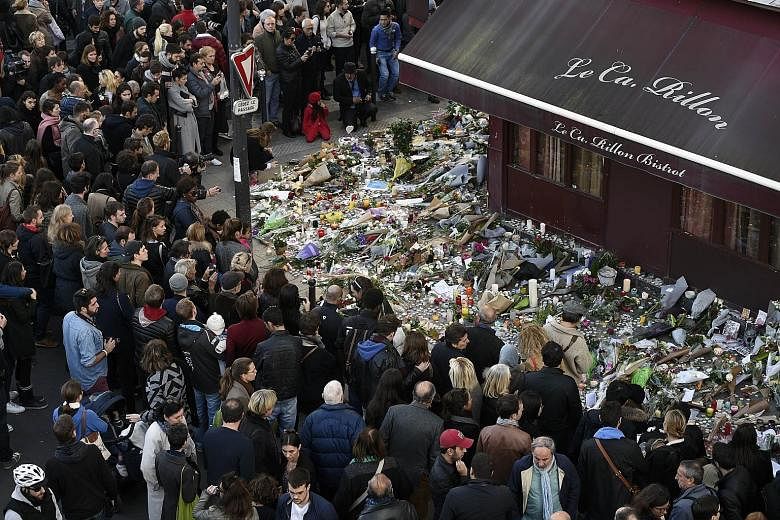The gunmen who brought destruction to the streets of Paris, France, on Nov 13 left not only 130 civilians dead, but also sent shock waves through the entire European Union. For although Europe is no stranger to terrorist attacks, the Paris massacres were a turning point; they are a stark reminder of how much the continent needs to do to improve its security measures and ensure the peaceful integration of its Muslim communities.
The gunmen were mostly French citizens who frequently travelled to and from Syria and other Middle East terrorist hot spots undetected, although they figured on the radars of Europe's intelligence services.
They were also able to move from one European country to another without leaving any documentary evidence, and encountered little difficulty in purchasing the weapons they needed from middlemen in Belgium. In short, the terrorists of today are fully globalised; it's only the forces of law and order which are hemmed in by national borders.
Trying to preserve the personal freedoms which Europeans cherish while at the same time tightening security procedures won't be easy.
And it may take Europe years before counter-terrorism legislation is harmonised in a way which provides for the same high standard of security throughout the continent.
But even more difficult would be the task of countering the radicalisation messages which have persuaded over 2,000 European Muslims to volunteer for terrorist groups in the Middle East. Social exclusion is not the only explanation for this phenomenon, but marginalisation does play a part. It is striking that those who perpetrated the Paris terrorist attacks were petty criminals, bred in the gritty housing estates of France and Belgium where they had little contact with the broader society in which they were born.
It is right and proper that the French government and those of other European nations should concentrate on apprehending the men of violence. But the real work of counter-radicalisation is only beginning, and it will be gruelling.
Jonathan Eyal

